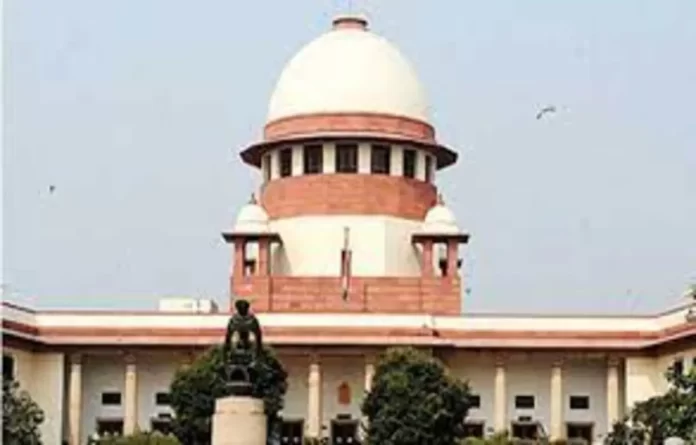The verdict, which reintroduces caps on corporate donations and emphasises transparency in political funding, is a turning point for Indian democracy
By Ashok Bhan
In a historic judgment, the Supreme Court’s Constitution Bench of five eminent judges, headed by Chief Justice of India Justice DY Chandrachud, has unanimously overturned the Centre’s electoral bond scheme. The scheme, which allowed anonymous political donations, was ruled unconstitutional by the court and as violative of the right to information enshrined in Article 19(1)(a) of the Constitution.
The system of electoral bonds, which had been in place for seven years, allowed individuals and companies to support political parties without disclosing their identity or limiting donations. This lack of transparency raised concerns from opposition parties and civil society groups, who argued that it compromised the public’s right to know the sources of political funding.
Chief Justice Chandrachud, speaking on behalf of the court, highlighted the significance of the judgment by emphasising how political donations can have an undue influence on policy making. The court recognised the detrimental impact of an “additional layer of opacity” in the electoral process, especially when substantial sums of money flow into political coffers from undisclosed sources.
The judgment comes at the right time to preserve the purity of elections and democracy itself, as emphasised by the Kashmir Policy and Strategy Group. By cancelling the electoral bonds system, the court aims to curb political mischief and restore accountability in the election funding process.
The electoral bonds system allowed individuals and companies to buy bonds from the State Bank of India and donate them to political parties, concealing their identity. Despite the government’s argument that this mechanism curbed the influence of “black money”, critics claimed it perpetuated opacity and facilitated potential quid pro quo arrangements.
According to the Association for Democratic Reforms (ADR), a significant portion of political donations totalling several billion rupees were channelled through electoral bonds. The dominance of corporate donations with a clear bias in favour of certain political parties gave rise to concerns about the undue influence of large corporations on political decisions.
Under the scheme, an individual or company could buy these bonds from the SBI in denominations ranging from Rs 1,000 rupees to Rs 10 million and donate them to a political party of their choice.
The bonds, which were first sold in early 2018, were then delivered to the party, which can exchange them for cash. The bonds, which were exempt from tax, did not bear the name of the donor. Cash donations are still permitted in elections, but are not tax-exempt.
Information about the funding of a political party is essential for voters to be able to exercise their right to vote effectively. The electoral bond scheme and the challenged provisions violate Article 19(1)(a) in that they infringe the voter’s right to information by anonymising donations through electoral bonds, the court added.
Since their introduction, electoral bonds had become an important method of political funding. Although donors were technically anonymous, citizens feared that the government could access the data through the state SBI.
Because of the close connection between money and politics, it was possible for financial contributions to “ lead to quid pro quo arrangements”, the court said as it reinstated the caps on corporate donations, declaring that it was “manifestly arbitrary” to treat corporations and individuals equally in this regard.
The ability of a corporation to influence the electoral process through political contributions is much greater than that of an individual. Corporate contributions are purely business transactions made with the intention of securing benefits in return, the Supreme Court decision states.
The verdict, which reinstates caps on corporate donations and emphasises transparency in political funding, is a watershed moment in Indian democracy. By recognising the right of voters to essential information, the court reaffirms the basic principles of democracy and electoral integrity.
The challenge to the poll bond system was brought by various stakeholders, including the Association for Democratic Reforms, political parties and concerned citizens. Their arguments, based on precedents emphasising the voters’ right to information, were well received by the court and resulted in a clear rejection of the government’s defence.
The court judgment not only removes the immediate concerns surrounding election funding, but also sets a precedent for transparency and accountability in politics. By abolishing a system that favoured secrecy over accountability, the court reaffirms the primacy of democratic values and the rule of law.
Going forward, both the government and civil society are called upon to ensure that electoral reforms are implemented effectively. Transparent and accountable election financing mechanisms are an essential prerequisite for promoting trust in democratic institutions and ensuring a level playing field for all stakeholders.
To summarise, the Supreme Court’s ruling on electoral bonds represents an important victory for transparency, accountability and democracy. By affirming voters’ right to information and challenging opaque financing practises, the court reaffirms its commitment to protecting democratic principles and ensuring the integrity of electoral processes.
—Ashok Bhan is a Senior Advocate, Supreme Court of India and is Chairman of the Kashmir Policy and Strategy Group.


